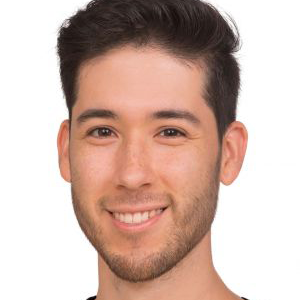

You won’t see Roberto Muñoz wearing a stethoscope when he completes his doctorate.
But for the Monash University PhD candidate, there are surprising parallels between an MD and his own work applying information theory techniques to enhance our understanding of quantum dots.
Semiconductor particles just a few nanometres in size, quantum dots are used in solar energy, lighting, lasers, quantum computing and in health care.
While members of Exciton Science already synthesise world-class quantum dots, a key goal of the Centre is to better understand how and why these particles behave the way they do.
And knowing more could enable us to improve their efficiency and usefulness across a range of important applications.
“One of the things that really limits their performance is they blink – they flicker on and off,” Roberto said.
“That’s not good if you want something to produce light. My research is about trying to understand the blinking mechanism.
“I like to compare my job to a doctor. If you have a disease, you don’t want to go on Google and type in your symptoms … You need a better diagnostic tool. So you go to a doctor and they can do a test on you.
“The work I’m doing is akin to developing a new diagnostic tool for quantum dots. It’s finding out, using mathematics, how I can extract more information to get a clearer picture of what is going on and determine the cause of the blinking, which are the symptoms in this case.”
Of particular interest to Roberto and his colleagues is determining to what extent, if any, quantum dots retain or ‘remember’ information about their behavior.
Roberto said: “I’ve been using some maths to tackle that problem and find a way to actually test and identify if there is memory in a quantum dot.
“Does that give us more information and what does that tell us? Is there any information in the past that changes behavior in the future?”
The possibilities that could be unlocked through an enhanced understanding of quantum dots are considerable, and there’s a similarly expansive outlook for Roberto’s career as he nears the completion of his studies.
“Science can really take you anywhere,” he said when asked about his preferred direction.
“I want to be able to continue to use what I’ve built in terms of skillset, being able to transfer that and use it for something that is going to be beneficial. Exciton Science is doing exactly that, with a massive focus on sustainable, efficient and greener energy, which is fantastic.
“Anywhere I think I could apply and find challenges where I could use my tool set I’ve built over the years I’ve been in university towards a good cause, and to help people would be really nice.”
See more of Roberto’s involvement in the Centre in the following section:

The work I’m doing is akin to developing a new diagnostic tool for quantum dots. It’s finding out, using mathematics, how I can extract more information to get a clearer picture of what is going on and determine the cause of the blinking, which are the symptoms in this case.”